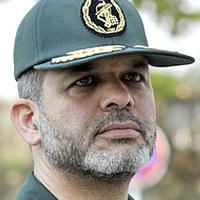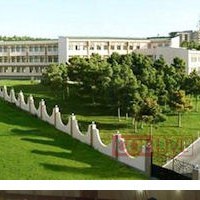![]()
Thu, March 24, 2011 | DebkaFile

Russian President Dmitry Medvedev (L) speaks with Israeli Prime Minister Benjamin Netanyahu during their meeting at the Gorki residence outside Moscow. (AFP/RIA Novosti/Dmitry Astakhov)
Israeli and Saudi leaders meet in Moscow as Palestinians ramp up Missile Strikes
DebkaFile reports:
As Russian, Israeli and Saudi leaders discussed the ramifications of the Arab uprising in Moscow and US Defense Secretary Robert Gates talked to Israeli military chiefs in Tel Aviv, the Palestinian Hamas continued to escalate its missile offensive on Israeli cities. Thursday, March 24, heavy Grad missiles hit the towns of Ashdod and Ofakim making it the worst day of a bad week, with schools in the southern half of Israel shutting down one by one and bomb shelters being opened.
In Moscow, debkafile’s exclusive sources report that Russian Prime Minister Vladimir Putin was working to set up a discreet meeting between two visitors – Israeli Prime Minister Binyamin Netanyahu and Saudi Foreign Minster Prince Saudi Al-Faisal, failing which he will try and bring the Saudi Intelligence chief Prince Muqrin bin Abdulaziz, who arrived with the foreign minister, together with the Israeli leader.
Muqrin has met Israeli leaders in secret before, including the former Prime Minister Ehud Olmert.
According to our sources, the prospect of this landmark meeting was Netanyahu’s pretext for rebuffing the rising domestic clamor to let the IDF give the Palestinian Hamas its deserts for the war it has unleashed against the Israeli civilian population.
The very defense and military officials who keep on telling the public, against all the evidence, that Hamas realy wants calm restored, have given a quite different picture to the prime minister and defense chiefs. The radical Palestinian rulers of Gaza are in fact raising the stakes, they say, and hoping to goad Israel into an extreme response in the belief that a war clash with Israel will elevate the Gaza Strip to the same regional level as the war in Libya and the Arab uprisings, especially in Yemen and Bahrain.
They also believe it will help Syrian president Bashar Assad, who hosts a Hamas center in Damascus, by distracting attention from the bloodbath he is inflicting on protesters against his repressive regime.
Thursday, Syrian soldiers were reported to have shot 100 protesters dead in the southern town of Deraa. At some point, the West which is punishing Muammar Qaddafi for killing his own people might also take notice of Assad’s actions against his.
Netanyahu’s military chiefs have explained to him that abstention from a military operation against Hamas could be interpreted by the Syrian ruler as an Israeli signal of willingness to go an extra mile for the sake of peace talks.
Debkafile’s Jerusalem and Moscow sources note that this is the point at which Israel’s declining security situation becomes relevant to a possible Israeli-Saudi dialogue.
Neither Jerusalem nor Riyadh is at ease with the US role in favor of the popular uprisings against veteran Arab regimes — and most particularly the US-UK-French military intervention in Libya. Both find this policy detrimental to the national and security interests of America’s foremost Middle East allies.
They also share resentment for the benefits accrued from this wave of unrest by Tehran and the effect it has had to turn world attention away from its progress toward manufacturing a nuclear bomb.
The Saudi king and Israeli prime minster are apprehensive, on the strength of their intelligence input, that Iran will eventually seize control of the popular uprisings in Arab lands, especially Egypt.
Riyadh alone took a substantial precautionary step against this menace by sending military units into the Bahrain on Feb. 14 to pre-empt the Iranian-backed Shiite threat to King Hamad bin Isa Al Khalifa and the tiny kingdom’s financial and oil assets at the back door of the rich eastern Saudi oil center.
Israel’s leaders in contrast have never struck any position or policy with regard to the turbulence around its borders, ignoring the perils they pose to its security.
Netanyahu’s trip to Moscow, which opposes the US-British-French operation in Libya, is his first attempt to explore a diplomatic option outside Israel’s alliance with the United States. The Russians, the Saudis and the Israelis too see advantages in discussing such options and testing new paths of cooperation to renew the direct exchanges Riyadh and Jerusalem maintained in the past through back channels on the Iranian issue.
It is therefore not surprising to find US Defense Secretary Robert Gates arriving in Israel Thursday. He flew in from Cairo after talks with Egyptian military leaders about possible military participation in the coalition campaign against Muammar Qaddafi. In his talks with Israeli defense and military chiefs, Gates will no doubt stress the importance to Israel’s security of the strong ties between Jerusalem and Washington.



 RSS
RSS










Israeli and Saudi leaders meet in Moscow as Palestinians ramp up Missile Strikes | #Russia #Israel #SaudiArabia http://j.mp/dYGmt0
https://www.crethiplethi.com/israeli-and-saudi-leaders-meet-in-moscow-as-palestinians-ramp-up-missile-strikes/israel/2011/